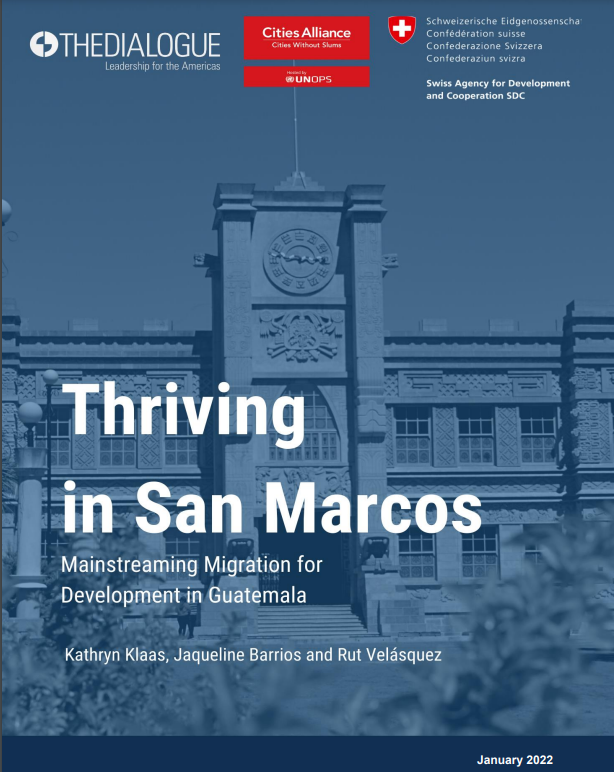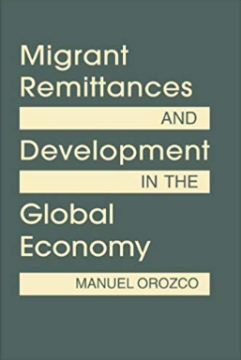The Earthquake’s Impact on Remittances
The earthquake in Haiti has exacerbated an existing distress during the international recession and increased uncertainty of what to do and how to help.
In this report, The Inter-American Dialogue is pleased to present the activities and results of the Thriving in San Marcos initiative. This strategy was implemented in Guatemala between November 2019 and 2021 in partnership with Cities Alliance, and offered an innovative approach to local migration management. Migration makes substantive contributions to Guatemala’s local economies. Remittances increase households’ disposable income and generate savings. Most savings are kept informally, but, through greater financial education and financial inclusion, they can be brought into the formal financial sector, to accounts at banks and credit unions. The process of formalizing these savings generates assets that allow people to create wealth, therefore creating local development and minimizing the risk of continued migration. By incorporating a migration perspective into methodologies for financial inclusion, local investment, education, and capacity building, the project sought to alleviate some of the challenges posed by internal and international migration at the municipal level.
The report begins with a description of Guatemala's migratory situation, and the importance of remittance flows to its economy. It establishes the stakes for successful migration management at the municipal level. It then presents the Thriving in San Marcos initiative, and its five components:
The earthquake in Haiti has exacerbated an existing distress during the international recession and increased uncertainty of what to do and how to help.
How do patterns of migration and remittances differ across regions? What kinds of frameworks support the contributions of remittances to local development?
To what extent have the policies of President Juan Manuel Santos helped or hindered businesses in Colombia?


